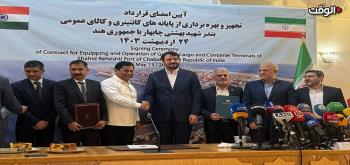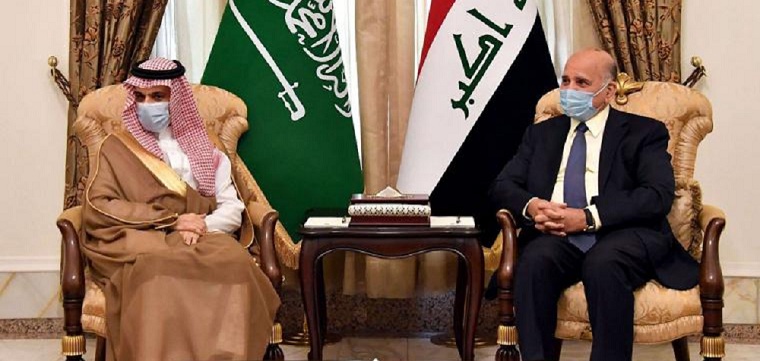Alwaght- For the past two weeks, Baghdad has been plagued by diplomatic travel traffic. The busy two weeks began with the visit of an Iraqi political delegation led by Prime Minister Mustafa Al-Kadhimi to the United States on August 18, 2020. Following Al-Kadhimi’s return from the United States, he left for the city of Amman on August 25, 2020, for a tripartite meeting with the political leaders of Jordan and Egypt. Simultaneously, the French Defense Minister set out for Iraq on August 26, 2020. Saudi Arabia's Foreign Minister Faisal bin Farhan Al-Saud has also made his way to Baghdad on August 27, 2020.
According to Iraqi media, Faisal bin Farhan Al-Saud will meet with Iraqi Prime Minister Mustafa Al-Kadhimi and his Iraqi counterpart Fuad Hussein. But now the question arises that, what are the goals behind the Saudi Foreign Minister's visit to Baghdad, in the current situation, or in other words, in the continuation of the diplomatic traffic of the Iraqi government? In order to address this question, two main objectives can be considered.
Laying the groundwork for Al-Kadhimi's visit to Saudi Arabia
The first and most tangible purpose of the visit of Saudi Foreign Minister Faisal bin Farhan to Baghdad can be assessed in connection with the preparation for the visit of Mustafa Al-Kadhimi to Riyadh. This plan was set for the Iraqi Prime Minister to make his first foreign trip to Riyadh in July after taking office, but was canceled at the time, due to the illness of Saudi Arabia’s King Salman. It now appears that the Saudi rulers are seeking to pave the way for Al-Kadhimi’s visit to Saudi Arabia following his visit to the United States. At the time being, this trip is of great importance to the Saudis in the symbolic and political dimension and we will probably witness this diplomatic trip take place in the near future. Despite all this, the groundwork for Al-Kadhimi's trip to Riyadh can only be assessed as the front page of the story.
Iraq advancing its strategy for proximity with the Arab world and distancing itself from Iran
The main and fundamental purpose of Faisal bin Farhan Al-Saud's visit to Iraq can be assessed in relation to the recent signals that have been raised after the visit of the Iraqi delegation to the United States. First of all, we understand that the United States and Iraq have signed significant agreements in the field of energy exchange, especially in the field of importing electricity. Moreover, Al-Kadhimi has unveiled "The New Levant Plan" immediately after returning from Washington, with the aim of creating a strategic pivot for information exchange, technology, trade and free investment between the three countries of Iraq, Jordan and Egypt.
The plan which is based on the Arab axis, defines Iraq as the center of energy, Egypt as the center of population and Jordan as the ring of geographical communication. Meanwhile the remarkable point is that one of the principles emphasized is that Iraq will give oil to Jordan and Egypt and in return will import electricity from these countries. This focuses precisely on the area that US sanctions against Iran have failed to resolve the issue, for which Washington has been forced to grant exemptions for imports of energy from Iran to Baghdad.
If the puzzle pieces are precisely put together, it is clear that in cooperation with Egypt and Jordan, the United States is trying to make up for the lack of electricity in Iraq. Simultaneously during this process, the Saudi Foreign Minister travels to Baghdad. If all equations are carefully analyzed, it is clear that there is now a coherent plan to keep Iraq away from Iran and draw it closer to the Arab world. For Sure, there are some major economic privileges intended for the Iraqis. For example, it has been widely publicized in recent days that Al-Kadhimi's “The New Levant Plan” paves the way for great job opportunities in Iraq, and would solve many issues related to the unemployment of the Iraqi youths. Overall, Saudi Foreign Minister's visit to Iraq can be further assessed as a conspiracy to create a split between Tehran and Iraq, and not a routine diplomatic visit.



























